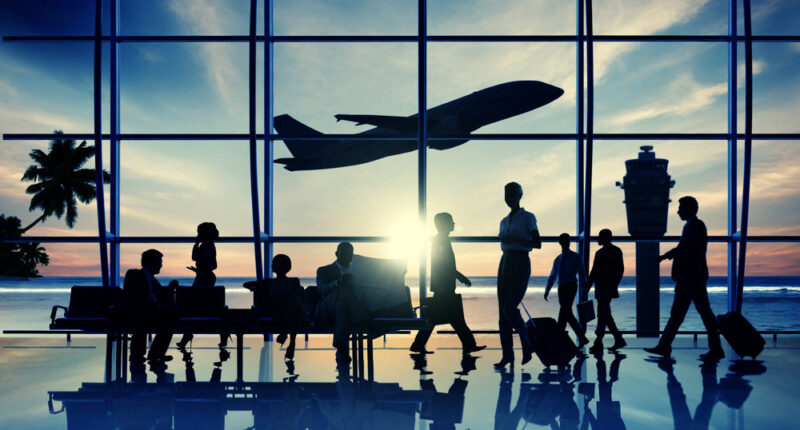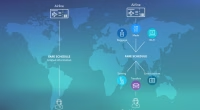Navigating the New Horizon Agile Executives Embrace Evolving Corporate Journeys
Understanding the Pivotal Shift in Business Travel Paradigms for Tomorrow’s Leaders
In 2025, the traditional concept of corporate travel has undergone a profound transformation. No longer just a logistical necessity, business travel has evolved into a strategic imperative, a vital tool for the agile executive to foster growth, cultivate relationships, and drive innovation in a rapidly globalizing marketplace. This isn’t merely about getting from point A to point B; it’s about optimizing every aspect of the journey to maximize productivity, enhance collaboration, and ultimately, redefine corporate success. The demands of a dynamic global economy mean that businesses must be more responsive and interconnected than ever before, with travel playing a crucial role in bridging geographical distances and strengthening professional bonds.
AI at Your Service Streamlining Every Step of the Corporate Journey
How AI-Powered Tools are Revolutionizing Booking and Expense Management for Efficiency
The backbone of this new era of corporate travel is undoubtedly Artificial Intelligence (AI). In 2025, AI-powered tools are no longer futuristic concepts but essential components, meticulously streamlining every facet of business travel, from the initial booking to the final expense report. Intelligent algorithms analyze travel patterns, preferred vendors, and budget constraints to suggest optimal flight and accommodation options, often anticipating needs before they arise. This sophisticated automation drastically reduces the time and effort traditionally spent on administrative tasks, freeing up executives and their support teams to focus on core business objectives. The integration of AI into travel management platforms is creating a seamless, intuitive experience that enhances efficiency and reduces the margin for error, fundamentally transforming the travel planning process.
The Rise of the Hub-and-Spoke Model Strategic Connectivity for Global Reach
Embracing Decentralized Travel Patterns and Localized Engagements for Optimized Operations
Complementing AI’s efficiency gains is the burgeoning adoption of the “hub-and-spoke” travel model. In 2025, instead of sending large teams to a single central location, companies are strategically utilizing regional hubs for concentrated activity, with individual executives traveling to specific “spoke” locations for targeted meetings or specialized projects. This model optimizes travel costs and time, allowing for more frequent, impactful interactions where they are most needed, while minimizing unnecessary large-scale travel. It reflects a growing understanding that effective global engagement doesn’t always require mass mobilization, but rather precise, strategic deployments that leverage local expertise and build stronger regional presences. This approach promotes efficiency and agility, enabling businesses to respond rapidly to emerging opportunities across diverse markets.
Prioritizing Well-being A Holistic Approach to Traveler Care
Increasing Focus on Traveler Well-being and Mental Health Beyond Standard Comforts
A critical development in 2025’s corporate travel landscape is the heightened emphasis on traveler well-being. Recognizing that fatigued or stressed employees are less productive and more susceptible to health issues, companies are investing in holistic approaches to care. This includes providing access to wellness apps, promoting healthy eating options, ensuring comfortable and convenient travel arrangements, and offering flexible schedules to mitigate jet lag. The focus extends beyond physical comfort to include mental well-being, with resources available to help travelers manage stress and maintain work-life balance while on the road. This shift reflects a strategic understanding that a healthy and happy workforce is a productive one, making traveler well-being an integral part of successful corporate travel policies.
The Power of Personalization Tailoring Every Journey to Individual Needs
Customizing Travel Experiences to Enhance Productivity and Satisfaction for Discerning Executives
Personalization stands out as a key differentiator in 2025’s corporate travel. Gone are the days of one-size-fits-all itineraries. AI and data analytics enable travel managers to tailor experiences to individual executive preferences, optimizing for factors like preferred airlines, hotel loyalty programs, dietary needs, and even specific seating arrangements. This level of customization not only enhances comfort and convenience but also significantly contributes to traveler satisfaction and productivity. When executives feel their needs are understood and met, they are more engaged, focused, and ultimately, more effective in their business objectives. This bespoke approach to travel reflects a sophisticated understanding of how small details can make a significant impact on overall performance and morale.
Redefining Corporate Success Strategic Travel as a Growth Catalyst
The Indispensable Role of Business Travel in Fostering Innovation and Global Collaboration
Ultimately, the future of corporate travel in 2025 is about redefining corporate success itself. Business travel, optimized by AI, structured by hub-and-spoke models, and centered on traveler well-being and personalization, becomes an indispensable catalyst for growth. It facilitates the cross-pollination of ideas, strengthens client relationships through in-person interaction, and opens doors to new markets and partnerships that simply cannot be achieved through virtual means alone. For the agile executive, every business trip is an opportunity to learn, to connect, and to lead with impact. By strategically embracing these evolving travel paradigms, companies are not just managing expenses; they are making shrewd investments in their global reach, their human capital, and their ultimate competitive advantage in the modern business world.









